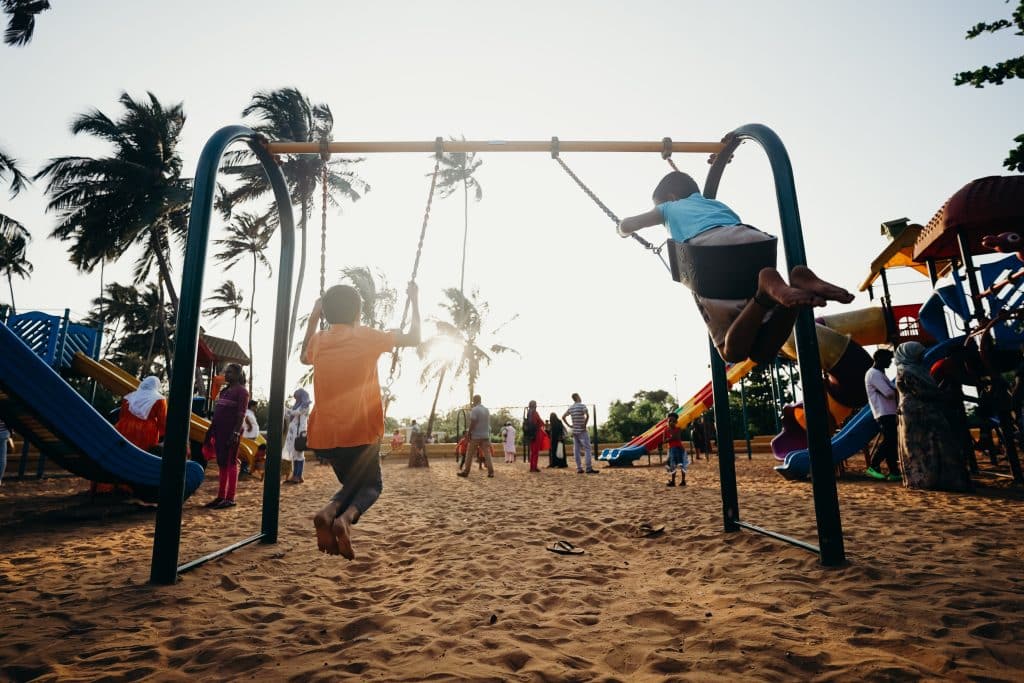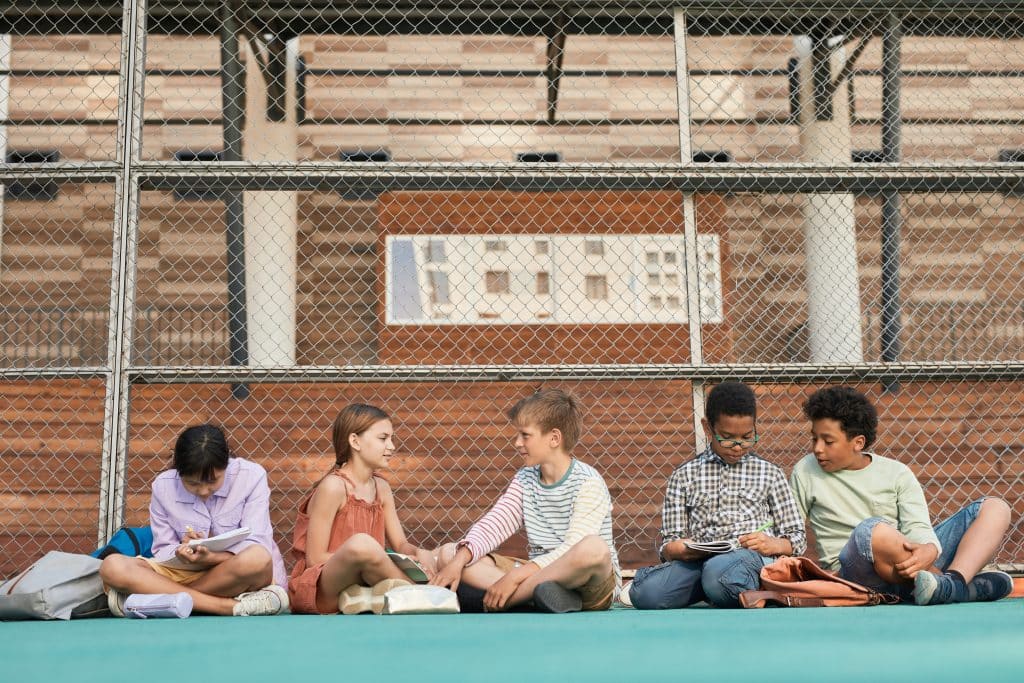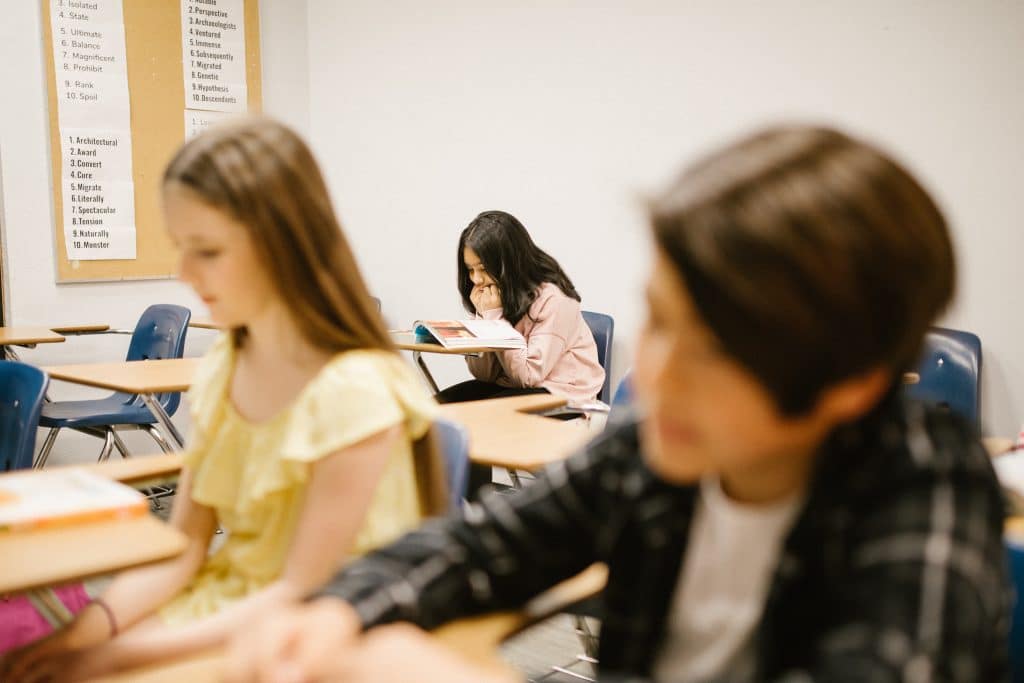Forming friendships impact many areas of child development, including school performance. Have you noticed your child not making friends at school? Don’t worry—you’re not alone. Many parents, especially those with neurodivergent kids or children with thinking and learning differences, share this concern. Good news! We’re here to help you guide your child through this social maze and transform them into a playground social star. Keep reading for easy-to-follow tips backed by research that will help friendships grow.
Table of Contents
The Social Maze of Neurodivergent Kids
When a child is not making friends at school, it can be distressing for both the child and their caregivers. However, understanding the challenges faced by kids with thinking and learning differences, such as those with autism or ADHD, is crucial for helping them build connections and create lasting friendships. Let’s take a look at some common roadblocks these children may encounter and their unique strengths that can make them exceptional friends.
| Challenges/Roadblocks | Unique Strengths |
|---|---|
| Communication troubles | Great problem solvers |
| Sensitivity to sights and sounds | Incredible creativity |
| Difficulty understanding social cues | Deep sense of empathy |
| Feeling anxious around new people or situations | Strong attention to detail |
By acknowledging and addressing these challenges, we can better support our neurodivergent children as they create new friendships and experience the joy of connecting with others. It’s essential to remember that
Read More: How to Help a Shy Child Socialize0
Empathy & Active Listening Make All the Difference
When your child is not making friends at school, it can often be disheartening, but it’s important to listen to their concerns and provide a supportive environment. By empathizing with your child and encouraging open communication, you can better understand their experiences and feelings, ultimately finding solutions together. Here are some tips on creating a safe space for your child to express their concerns about making friends at school.
- Feel what your child feels and truly listen when they talk about their concerns.
- Accept their emotions without judging.
- Ask open-ended questions to encourage them to share more.
- Validate their experiences while offering comfort.
- Discuss similar experiences from your own childhood, showing them that everyone faces friendship challenges sometimes—even grown-ups!
By providing this essential support and understanding, your child will feel more comfortable expressing their emotions and collaborating with you on finding ways to overcome their social hurdles and build strong, lasting friendships.

Boosting Social Skills With Fun Strategies
Now that we’ve set the stage, let’s explore fun strategies that can improve your child’s ability to connect with others!
Plan Playdates & Group Activities
Setting up playdates or signing them up for group activities introduces them to potential buddies who have similar interests—friendship magic! Choose activities that match your child’s interests, like art classes or sports teams. Invite classmates over for a movie night or a themed playdate.

Read more: How to Help Your Child Make Friends
Practice Social Scenes Together
Acting out everyday interactions (e.g., saying hello or asking someone if they want to play) helps kids gain confidence in real-life social situations. Set aside time each week to practice different scenarios. Use toys, stuffed animals, or even yourselves as characters in the role-play.
Teach Emotional Smarts
Help your child recognize and understand their own feelings, as well as those of others. This emotional wisdom is useful when making friends at school. Read books together about emotions and discuss how the characters feel. Encourage your child to express their feelings through drawing, writing, or talking with you.
Team Up with Teachers & School Staff
Keep in touch with educators so they know about your child’s needs and can offer extra help in the classroom or on the playground. Attend parent-teacher conferences regularly. Share strategies you’ve found helpful at home so teachers can implement them at school too.
Small Victories Lead to Big Success
As you try these strategies, remember that progress might be slow—but that’s okay! It’s vital to celebrate small victories along the way:
- A fun playdate
- Joining a group activity without fear
- Talking openly about friendships
These little wins will keep your child excited to keep trying and eventually lead them toward strong connections. Moreover, make sure you’re always there for support and encouragement when needed; after all, it takes teamwork between parents and children alike!

Read more: How to Make Friends at the Playground
Goally | 100+ Streaming Video Classes
Does your child need some extra guidance on building essential life skills? Goally’s skill building tablet for kids includes a TV app that has the most robust video library of skills training videos for kids. Ranging from content like “How to Brush Your Teeth” to “How to Make Friends at School,” we have dozens of interactive video lessons for kids with thinking and learning differences.

HERE’s a video explaining how to works.
Keep Calm & Friend On!
Helping your neurodivergent kiddo make friends at school can feel like walking a tightrope for both of you. But by understanding their unique challenges, practicing empathy, and using helpful strategies, you’ll empower them to build meaningful relationships. Remember – it’s all about celebrating small successes while staying patient and supportive throughout this journey. So take a breath, trust the process, and watch those playground friendships blossom!
FAQs About Child Not Making Friends At School
Q: How can I help my child who is not making friends at school? A: Support your child by understanding their challenges, creating a safe space for open communication, and exploring strategies like visual schedules and emotional regulation apps to improve their social skills. Q: What common challenges do children with learning differences face in making friends? A: Children may face communication troubles, sensitivity to sights and sounds, difficulty understanding social cues, and anxiety around new people or situations. Q: How can I create a supportive environment for my child to discuss their friendship concerns? A: Actively listen to your child, accept their emotions without judgment, ask open-ended questions, and share your own childhood experiences related to friendship challenges. Q: What tools can help my child with emotional regulation and social skills? A: Consider using visual schedules, emotional regulation apps, and rewards systems to promote positive behaviors and boost your child's social confidence. Q: How can I help my child overcome their social hurdles? A: Encourage your child to practice social skills, incorporate learning tools like visual schedules and apps, and collaborate with school staff to provide additional support during school hours.
This post was originally published on 04/10/2023. It was updated on 10/13/2023.

Goally
We help parents teach their kids life skills, like doing bedtime and morning independently. Backed by science, we incorporate evidence-based practices and expert-informed designs in all of our apps and content.






